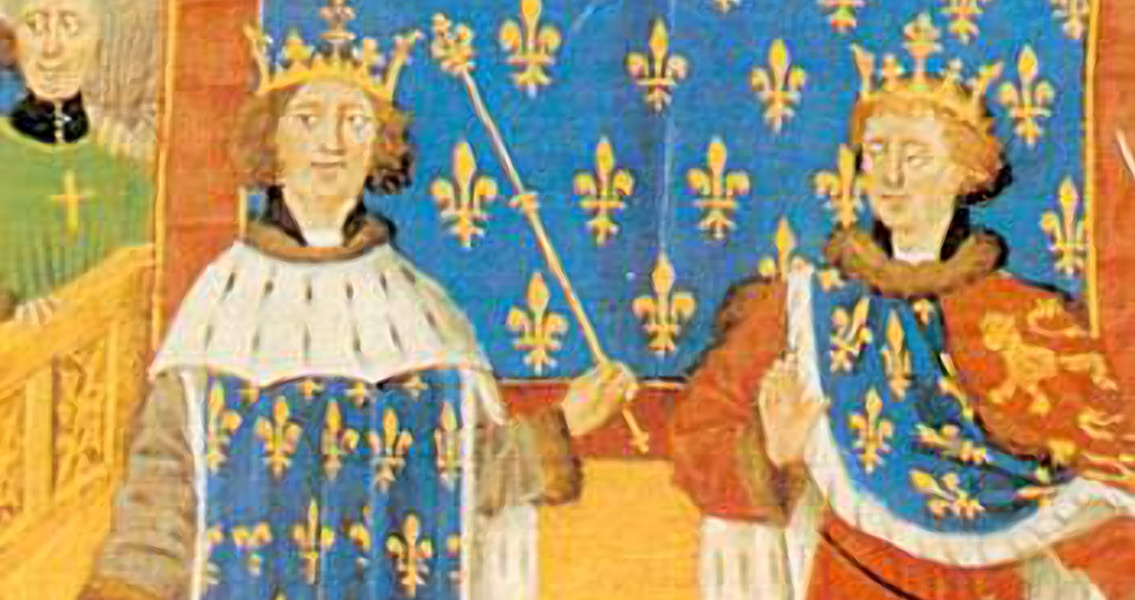<![CDATA[One of England's most legendary kings, but one who spent less than six months of his reign in the country, ascended to the throne on 6th July, 1189. Richard I, often called Richard the Lionheart, has been absorbed into countless romantic legends; the only king to have a statue outside the Houses of Parliament, the chances are he could barely speak English. Richard the Lionheart is most commonly associated with his leadership in the Crusades, or the massive ransom that needed to be paid to free him from the German Emperor Henry VI. Yet before he had even secured the throne, his life had been one of family feuds, rebellion and war, making the plot twists and intrigue of HBO's Game of Thrones seem mild by comparison. Born in Oxford, England in 1157, the third child of Henry II and Eleanor of Aquitaine was raised in France at a time when England was still under French rule. Richard was given the Duchy of Aquitaine at eleven years old, and the Dukedom of Poitiers in 1172. Early on he formed a reputation as a formidable military and political leader, keeping in check the potentially troublesome aristocracies that came with the territories he inherited. At the same time, he won fame as a knight, forming the warrior reputation that would stay with him the rest of his life. In 1173, aged just sixteen, Richard got his first real taste of war, starting on his path to the throne in a family conflict which divided the kingdoms of north west France. Backed by their mother, Richard, his older brother Henry the Young King, and his younger brother Geoffrey, launched a bold rebellion against their father - now separated from Eleanor. For eighteen months the armies of the family fought against each other until the King eventually brought his son's forces to a standstill, and formally reconciled with them. Shortly after, Richard became embroiled in suppressing baronial revolts in his own duchy. He deployed a ruthless, reckless approach to the barons, which only intensified the uprising. Eventually, a group from Gascony approached Geoffrey and the younger Henry for aid in driving Richard out of his duchy for good. Highlighting the almost absurd intrigue of the age, and the paper thin loyalty even within families, the brothers joined the baronial revolt. Richard was eventually saved by the intervention of his father, Henry II, just a few years after Richard had taken part in a revolt against him. In 1183 the younger Henry, the heir to the throne, died from dysentery, leaving Richard next in line to rule England, Normandy and Anjou. The elder Henry attempted to push Richard into yielding Anjou to his youngest brother John, but Richard refused. The new heir to the throne appealed to Philip II, the young King of France, to support him against Henry. At the start of 1189 the pair launched a joint campaign against Henry, relentlessly pursuing his forces across France and ultimately making him accept Richard as his sole heir. The defeat was all the more galling for Henry, as he had learnt shortly before that John, the son he tried to secure Aquitaine for, had joined forces with Richard. On 6th July, bed ridden with a sudden, severe fever, Henry died, leaving Richard the Lionheart the King of England, Anjou and Normandy. Richard I is a king who divides opinion, one who showed signs of remarkable ability and terrifying cruelty. His rise to the throne illuminates his skill as a political and military leader, but also the lethal workings of the society into which he was born. ]]>
Richard the Lionheart Ascends To The Throne
